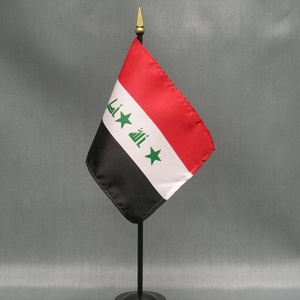Who’s Eligible to Be the Next Iraqi PM? Maliki or Allawi?

Clearly, the best solution to overcome the present impasse is to obey the law and respect the Iraqis’ votes. Unfortunately, during the last seven months, minor groups have blocked the way toward a coalition with their non-deserving demands. Political greed, fueled by some Arab countries in the region, has created cracks in Iraq’s electoral and political structure and given trouble to Nuri Maliki in forming his new cabinet.
During the early years of Iraq’s occupation, the ethnic and religious composition of this country compelled the political elite and legislators to create a constitution that acknowledged the existence of all ethnicities and faiths, and precluded the rule of a minority over the majority. Thus, political engagement and diversity, with the presence of all ethnicities and religious groups, is enshrined in Iraq’s constitution. The Iraqi president needs the vote of two-third of MPs, and premiership nominees need the minimum vote of 50% of legislators to be eligible to form a cabinet.
The impasse over the identity of the next prime minister has brought the flip side of this provision to light. Minorities are now hardly content with rights supported by the constitution, and are using their legal rights to hold the fate of Iraq hostage. Kurds, for example, hold only 57 seats in the parliament, which is near one-sixth of the total number of seats. The presidential post is not satisfying them anymore, so as king-makers, they are seeking increasing incentives to choose between Maliki and Allawi. The same is true for minor Sunni and Shi’a groups who coalesced around Ayad Allawi and gained a total of 91 seats, who are now asking for the premiership as if it is their natural born right. The demographics of Iraq, however, do not support Allawi and his slate for assuming control of the country’s fate.
Based on an unwritten law, Iraq’s prime minister is elected from among Shi’a politicians. Allawi, of course, is a Shi’a (from a secular tradition), but he is not the real nominee of the Shi’a majority of Iraq, so his desire to regain the position from Maliki seems to lack a solid base.
During his four-year term, in the provincial elections of 2008 and in the March 2010 parliamentary elections, Nuri Maliki has proven to be a better performer than Allawi as the leader of a new Iraq. He has proven to possess the required wisdom, patience, and independence to turn Iraq into a true sovereign state once again.
Mohammad Farazmand is Iran’s former ambassador to Bahrain.

